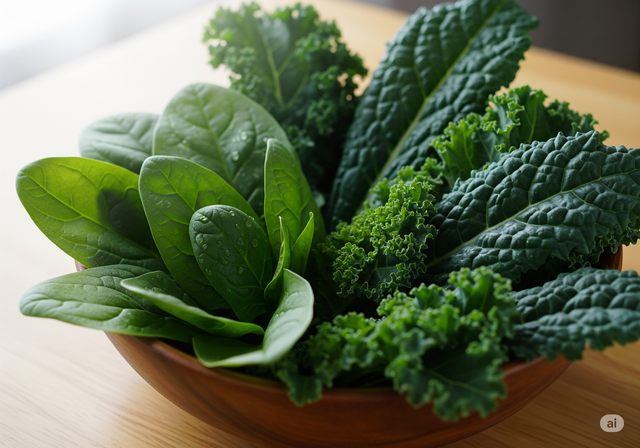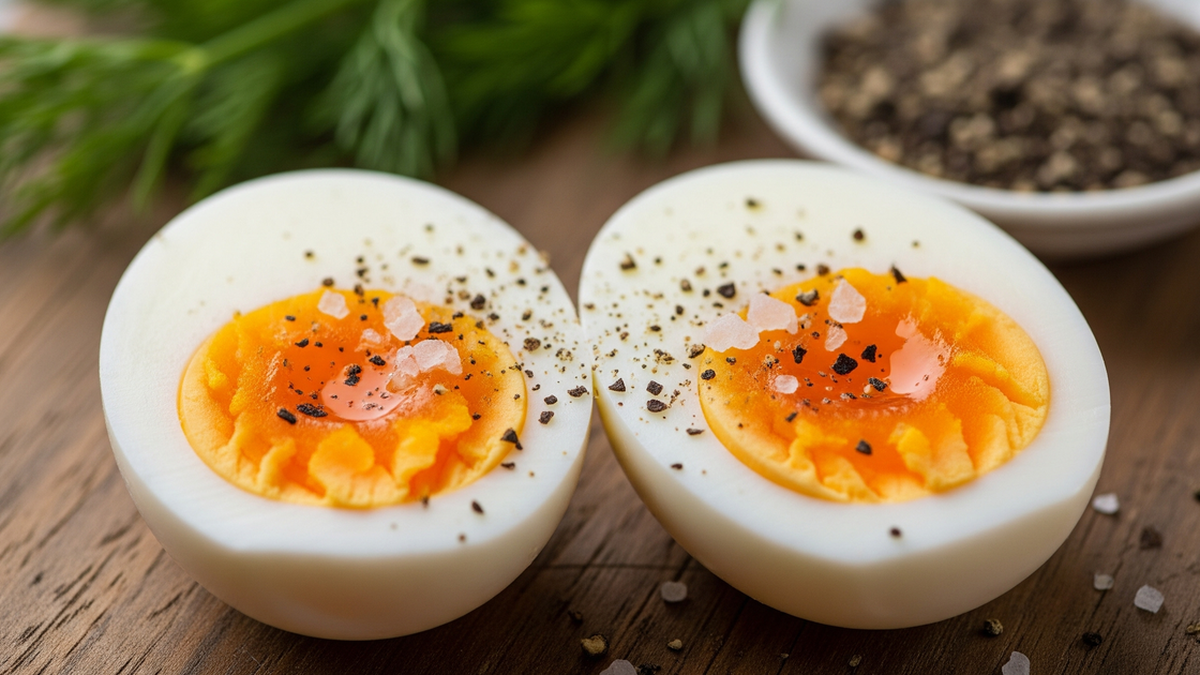Starting the day with health news , readers can also read more articles: Taking a lot of kidney tonics is not always good; What to eat to reduce the risk of stroke?; Finding the unexpected culprit causing insomnia...
Surprise Discovery: How Many Eggs Should You Really Eat Per Day?
For years, eggs have been considered a controversial food. Once blamed for raising cholesterol levels, many people are wary of eating eggs or egg yolks.
However, recent scientific findings have reversed this view. Eggs are being recognized for their potential benefits, especially for bone health.

Eating eggs helps bones become significantly stronger
Photo: AI
Research published in the scientific journal Food & Function has provided new insight into the relationship between egg consumption and overall health.
Researchers from the University of Alberta (Canada) and the School of Public Health at Huazhong University of Science and Technology (China) tracked nearly 19,208 older adults and their egg consumption from the US National Health and Nutrition Examination Survey (NHANES), data collected over 10 years.
Results found that people who consumed about 1.5 eggs a day had significantly stronger bones than those who did not eat eggs at all.
Specifically, people who eat 1.5 eggs a day have 72% higher bone density in the thigh bone and 83% higher bone density in the spine. The next content of this article will be on the health page on August 16 .
What to eat to reduce the risk of stroke?
Strokes often occur suddenly and have serious consequences, but did you know that up to 8/10 cases can be prevented through a healthy lifestyle, especially diet?
According to Dr. Cheng-Han Chen, interventional cardiologist and medical director at MemorialCare Saddleback Medical Center (USA), a healthy diet can control blood pressure, cholesterol and blood sugar - the main factors leading to stroke.
Some outstanding foods recommended by experts:
Leafy greens reduce the risk of stroke. Rich in nitrates, vegetables like spinach and kale help dilate blood vessels and lower blood pressure. A 2021 study in the European Journal of Epidemiology found that consuming at least 60 mg of nitrate from vegetables per day can reduce the risk of stroke by 17%.

Consuming at least 60 mg of nitrate from vegetables per day may reduce the risk of stroke by 17%
Photo: AI
Citrus fruits. Rich in vitamin C, folate, potassium, and soluble fiber, they help reduce cholesterol and inflammation. However, people who are taking cholesterol or blood pressure medications should avoid grapefruit because of possible drug interactions.
Walnuts . A 2021 study in the journal Circulation found that eating a few walnuts a day for two years helped lower bad cholesterol levels. They’re rich in omega-3s, which help reduce inflammation, blood pressure, and improve blood flow. The next part of this article will be on the health page on August 16.
Breakthrough in Insomnia Treatment: Unexpected Culprit Found!
New research just published in the medical journal General Psychiatry has found the culprit causing insomnia for many people, from which we can find a way to treat insomnia.
To explore the link between insomnia and gut bacteria, scientists from Nanjing Medical University in China analyzed data from 386,533 participants with insomnia and 26,500 participants with gut microbiome data.
The results found a reciprocal relationship between gut bacteria and insomnia.
There is a direct link between gut bacteria and the risk of insomnia, said study leader Dr. Shangyun Shi, Nanjing Medical University, China.

New study identifies 14 species of gut bacteria that may increase the risk of insomnia
Illustration: AI
The results identified 14 species of gut bacteria that may increase the risk of insomnia. However, the researchers also found that there are types of gut bacteria that reduce the risk of insomnia. Specifically, they found eight species that had a protective effect.
Additionally, research has found that insomnia may affect the abundance of certain types of gut bacteria.
Conversely, research has also shown that insomnia may also affect the gut microbiome. The authors suggest that future treatments for insomnia may include methods to control gut bacteria levels. Start your day with health news to see more of this article!
Source: https://thanhnien.vn/ngay-moi-voi-tin-tuc-suc-khoe-an-hon-1-qua-trung-moi-ngay-se-the-nao-185250816001625615.htm






















![[Photo] Firmly marching under the military flag: Ready for the big festival](https://vphoto.vietnam.vn/thumb/1200x675/vietnam/resource/IMAGE/2025/8/15/86df2fb3199343e0b16b178d53f841ec)


![[Photo] Prime Minister Pham Minh Chinh talks on the phone with Cambodian Prime Minister Hun Manet](https://vphoto.vietnam.vn/thumb/1200x675/vietnam/resource/IMAGE/2025/8/15/72d3838db8154bafabdadc0a5165677f)
![[Photo] Prime Minister Pham Minh Chinh attends a special art program called "Hanoi - From the historic autumn of 1945"](https://vphoto.vietnam.vn/thumb/1200x675/vietnam/resource/IMAGE/2025/8/15/c1c42655275c40d1be461fee0fd132f3)

![[Photo] Binh Khanh Bridge Ho Chi Minh City is ready to reach the finish line](https://vphoto.vietnam.vn/thumb/1200x675/vietnam/resource/IMAGE/2025/8/14/b0dcfb8ba9374bd9bc29f26e6814cee2)


![[Photo] The special solidarity relationship between Vietnam and Cuba](https://vphoto.vietnam.vn/thumb/1200x675/vietnam/resource/IMAGE/2025/8/15/5f06c789ab1647c384ccb78b222ad18e)































![[Photo] President Luong Cuong receives Finnish Ambassador to Vietnam Keijo Norvanto](https://vphoto.vietnam.vn/thumb/402x226/vietnam/resource/IMAGE/2025/8/15/9787f940853c45d39e9d26b6d6827710)




































Comment (0)